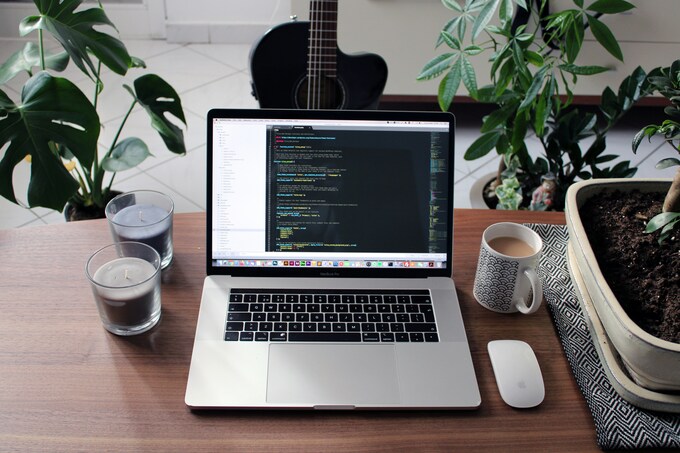
Welcome to the world of web development where innovation meets security! In this digital era, safeguarding data and ensuring compliance with regulations like GDPR are paramount. And when it comes to building secure web applications, Laravel stands out as a reliable framework that prioritizes both security and compliance. Let’s dive into the realm of Laravel Security and GDPR Compliance to understand why it is crucial for today’s developers.
Importance of Security in Web Development
In today’s digital age, security in web development is paramount. With cyber threats constantly evolving, safeguarding sensitive data has never been more crucial.
Web developers must prioritize security measures to protect user information from malicious attacks. From SQL injection to cross-site scripting, vulnerabilities are ever-present and require proactive mitigation strategies.
By implementing robust security protocols, developers can ensure the integrity of their applications and maintain trust with users. Regular audits and updates are essential to stay ahead of potential threats and keep systems secure.
Investing time and resources into developing a secure web application not only protects valuable data but also upholds your reputation as a trustworthy entity in the online realm.
Common Security Threats and Vulnerabilities in Laravel
When developing web applications with Laravel, it’s crucial to be aware of common security threats and vulnerabilities that could compromise the integrity of your project. One prevalent issue is SQL injection, where malicious code is inserted into a query to access or manipulate data in the database. Another concern is cross-site scripting (XSS), which allows attackers to inject scripts into web pages viewed by users.
Insecure direct object references can lead to unauthorized access to resources by manipulating parameters in URLs. It’s also important to guard against cross-site request forgery (CSRF) attacks that trick users into unknowingly submitting malicious requests while authenticated on a trusted site.
By implementing measures such as input validation, using parameterized queries, and employing Laravel’s built-in security features like CSRF tokens, developers can mitigate these risks and ensure the safety of their applications.
Best Practices for Securing a Laravel Project
When it comes to securing a Laravel project, there are several best practices that developers should follow to ensure the highest level of security for their web applications.
One essential practice is keeping your Laravel framework updated to the latest version, as updates often include important security patches and bug fixes. Regularly updating dependencies and packages is also crucial in maintaining a secure environment.
Implementing strong authentication mechanisms, such as multi-factor authentication and password hashing, can significantly enhance the security of your Laravel project. Additionally, using HTTPS encryption for data transfer helps protect sensitive information from being intercepted by malicious actors.
Applying input validation and sanitization techniques can prevent common vulnerabilities like SQL injection and cross-site scripting attacks. Utilizing Laravel’s built-in features like CSRF protection and middleware can further safeguard your application against potential threats.
By following these best practices consistently throughout the development process, you can significantly reduce the risk of security breaches in your Laravel project.
Understanding GDPR and its Impact on Web Applications
GDPR, or General Data Protection Regulation, is a set of rules designed to give individuals more control over their personal data. It affects how businesses handle and protect user information, making it crucial for web applications to comply with these regulations.
Under GDPR, companies must obtain clear consent before collecting any personal data from users. This means that websites need to have explicit opt-in mechanisms in place to ensure compliance.
GDPR requires organizations to implement robust security measures to safeguard user data from breaches. This includes encryption of sensitive information and regular security audits to identify and address vulnerabilities.
Failure to comply with GDPR can result in severe penalties and fines, emphasizing the importance of ensuring that web applications adhere to these regulations.
Understanding GDPR and its impact on web applications is essential for developers and businesses alike as they strive towards building secure and compliant digital platforms.
Why Laravel is the Ideal Choice for Secure and Compliant Web Development
When it comes to building secure and GDPR compliant web applications, Laravel stands out as the ideal choice for developers. Its robust security features, community support, and continuous updates make it a reliable framework for safeguarding against common threats and vulnerabilities.
By following best practices such as input validation, using encryption techniques, implementing CSRF protection, and staying up-to-date with security patches, developers can ensure that their Laravel projects remain secure from potential attacks.
With the implementation of GDPR regulations becoming increasingly important in today’s digital landscape, Laravel provides developers with the tools needed to build web applications that are compliant with data protection laws. Its flexibility and built-in features allow for easy integration of GDPR requirements into web projects.
Choosing Laravel for your web development needs not only ensures a high level of security but also helps you stay in compliance with data protection regulations such as GDPR. With its user-friendly syntax and powerful capabilities, Laravel empowers developers to create safe and legally sound web applications without compromising on functionality or performance.